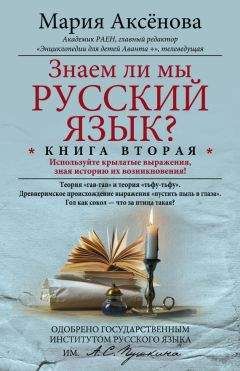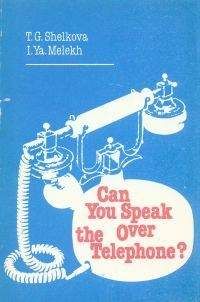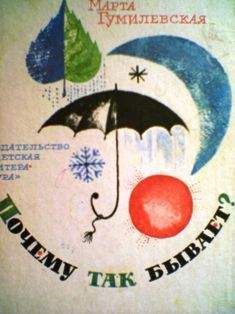Т. Шелкова - Can You Speak Over the Telephone. Как вести беседу по телефону
52
on the packing side: in the packing department
53
like the clappers: very quickly
54
haven’t got round to: haven’t managed to do/begin
55
a bit tricky: rather difficult
56
a spot of: a little
57
bung: put, throw
58
all laid on: all arranged
59
I’m very well, thanks: a slightly formal reply to the question “How are you?” than either ‘Tine, thanks” or “Oh, not so bad; you know”.
60
I’m afraid: a common conversational way of introducing an apologetic note into what is being said
61
there: in that respect
62
organise: note this colloquial use of “organise” to mean “get, obtain” (by means of some kind of planning); e.g. “I feel hungry — I’m going to organise a sandwich for myself.”
63
to do smth. the hard way: to have difficulties to overcome; e. g. ‘The manager came up the hard way — he started as an errand boy.”
64
Great one for the open air: I have a strong liking for the open air. The phrase “a great one for” is sometimes used to indicate strong preferences, as in “Jimmy’s a great one for football”, etc. there often seems to be some humorous intent when the phrase is used.
65
our lot: our family
66
put up with: toletate. Note the difference of meaning with “put up” to mean “accommodate”, as in “They’ll put up noisy kids in that hotel”.
67
give Charles a ring: note the numerous verbs which have to do with making a telephone call. Some of these, beginning with the more formal and ending with the less formal ones are: ‘Telephone X, Ring X, Give X a ring, Give X a tinckle”.
68
a dead loss: someone or something completely useless
69
scrabbling: combines the notions of crawling in and scratching about in (копаться, рыться)
70
popping into: going into. The implication is that it would only be for a short time. “Pop in” is also used of an informal visit, e. g. “If you happen to be passing just pop in and see me, please”.
71
I know just how it is: a phrase used to express concern and sympathetic understanding
72
mum and dad: the speaker’s way of referrring to herself and her husband
73
keep half an eye on: pay some attention to
74
too good to be true: a fixed phrase (так хорошо, что и не верится; невероятно)
75
allowing for: taking into account
76
a lot to offer: a fixed phrase often used for referring to something which has a number of desirable features
77
I tell you what: a colloquial way of introducing a suggestion
78
from over the road: the equivalent in less idiomatic English would be “who live on the other side of the road”
79
pop around: pop into
80
what with the children and the holiday traffic: the sense here is that “because of the children and the holiday traffic” the length of the drive will be a problem. This use of “what with” to mean something like “because of, in view of is quite common in conversational English; e.g. “What with doing the housework and the shopping, I never have a moment to spare”.
81
rattling on: colloquial for “chattering”
82
around: at home; “around the house” meaning “in the house”
83
only too glad: an expressive way of saying “glad”
84
Peatley two-seven-one: although more and more telephone exchanges in Britain are being converted to all-figure numbers, some are still identified by a name
85
How’s things: a colloquial variant of “How are you”
86
Croydon: a suburb of London
87
put me in with a chance: given me a chance
88
short-listed: placed on the “short list” of people who are selected from all the other applicants and given an interview.
89
for goodness sake: a mild exclamation often used to express varying degrees of exasperation
90
on the receiving end: in the position of receiving something
91
in the hot seat: a colloquial metaphor used of any uncomfortable situation
92
I shouldn’t worry too much about it if I were you: this sentence, or something very much like it, is used so often in these circumstances that it amounts almost to a fixed phrase
93
with your qualifications: the sense is that there are unlikely to be many applicants “with such good qualifications”, rather than “with the same qualifications”
94
we’ll see: we’ll see eventually what happens. Often used as a way of expressing doubt about the
95
loaded: loaded with money — a colloquialism
96
I don’t know about: a standard phrase for expressing doubt about whatever it introduces
97
scope: opportunity
98
old Billings : a common informal way of referring to people, especially men. The adjective “old” does not necessarily carry its normal sense, and it’s use in this way often implies a measure of affection.
99
do anyone a bad turn: harm anyone
100
a stick-in-the-mud: someone lacking in enterprise and averse to change. It is a classic instance of the kind of English “idiom” which used, to be collected in phrase books; and it sounds rather odd and a little old-fashioned as so many phrase-book idioms do, probably because they are not used very much nowadays. The most famous of all is perhaps “It’s raining cats and dogs” which no Englishman would ever be likely to say any longer unless he was trying to be funny.
101
move with the times: keep pace with current thinking. Another idiom that to some people might sound a little old-fashioned.
102
Too true: an emphatic way of agreeing’
103
have a bash: have a try’
104
Good for you: a common way of expressing approval of someone’s action
105
fed: gave
106
guff: a colloquialism for “information”, often used with the implication of irrelevance
107
lay it on too thick: exaggerate
108
go off: take a disliking to
109
cake walk it: the sense here is “get the job easily”. A “cake walk” is a simple undertaking.
110
keep my fingers crossed: the reference is to the traditional belief that crossing one’s fingers is a way of guarding against bad luck
111
a bit of a bind: a nuisance
112
the moors: вересковая пустошь, охотничье угодье (there are a great deal of open moorland in Yorkshire within easy reach of the large towns, and Sunday mornings walks there are popular)
113
steady on: a means of asking someone to be slower or more cautious in their behaviour or statements
114
pop out: go out
115
the Home Counties: the counties adjacent to London
116
turn in: go to bed
117
within reason: not beyond one’s possibilities
118
to be up to something usually implies something not altogether permissible, or at least surreptitious. “What have you been up to this time?” implies something likely to involve punishment. So the phrase is used jocularly, from one friend to another, implying that he or she must have been doing something out of the ordinary or at least interesting.
119
I’m afraid implies no fear, only regret that she has nothing more interesting to tell.
120
Just the usual grind is a way of describing monotony; nothing severe or otherwise unpleasant is implied.
121
come up: two idioms with “come” — “come up” meaning “to arise, to occur” and “come off meaning “to take place”
122
play hostess: “play” is often used as here to mean “fulfil the function of.
123
this do at Turin : “do”, used as a noun, is one of the many colloquial words for a social occasion.
124
Well, look here is more emphatic than “I say”, to begin a new statement.
125
Why don’t I come and look after…: this is a more forceful phrase than “Why shouldn’t I?”. It contains the hint of a firm offer which ought not to be refused.
126
demons: lively children are conventionally referred to as “young demons” — a phrase conveying admiration for their vitality but at the same time sympathy for the trouble which they can cause.
127
get on means “get on well together”, “like each other and are good companions”.
128
sort it out with James: discuss this question with James
129
I’ll come over simply means “I’ll come to you”.
130
frig: refrigerator
131
Is this Mrs Jones?: Americans begin a telephone call by asking, “Is this…?” whereas the English ask, “Is that…?”
132
To call in British English more often means to come in person, though it can have the sense of “calling up” or “ringing up” on the telephone, which is always the American meaning.
133
to rent: houses in England are usually said to be “to let”. The distinction is that you let your house to someone, but you rent a house from someone.
134




